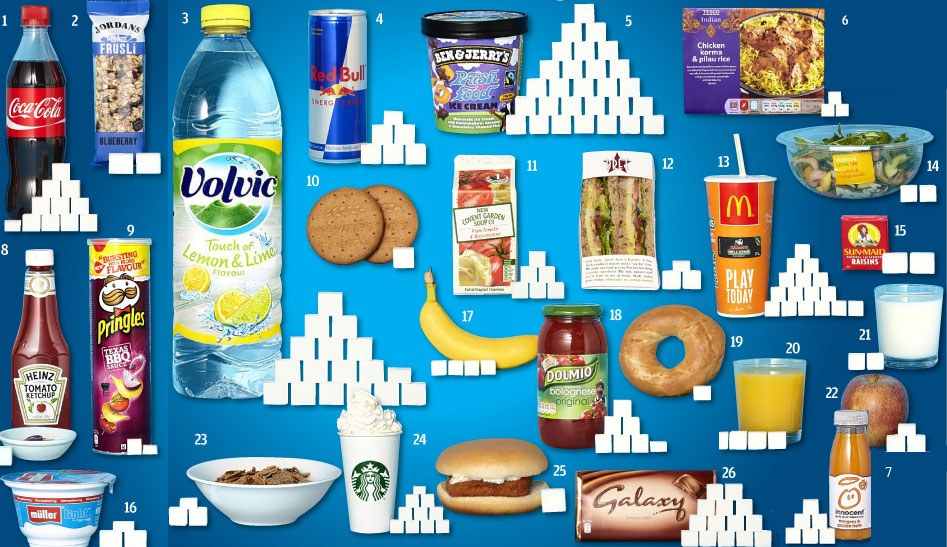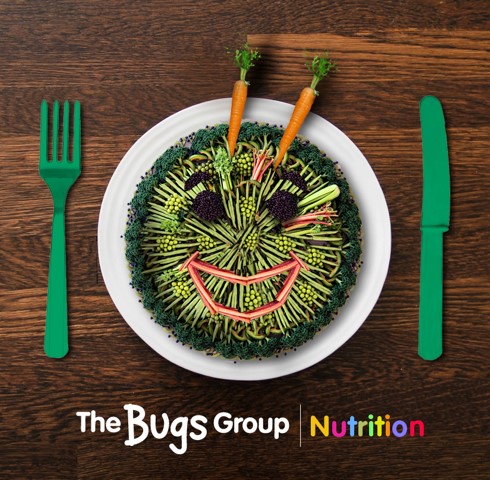This week is Sugar Awareness Week – a week aimed at increasing awareness of the different types of sugars, the dangers of high sugar consumption and possible dietary changes.
Sugar is one of the major contributors to an unhealthy diet and obesity levels. It can be particularly concerning within children’s diets, as it can be easy for kids to regularly exceed their recommended daily consumption levels.
A high-sugar diet can lead to an increase of fat and therefore weight gain, which can also contribute to serious health issues such as type 2 diabetes and heart diseases.
Through sweets, chocolate bars, fizzy drinks and even fruit juices, there are high sugar levels hidden in lots of children’s favourite food and drink. How many of these sugar offenders are you aware of? (Image from reachingutopia.com)

With recent stats from the NHS showing that over one in five children starting reception are either overweight or obese, it is clear that changes must be enforced. The government announced last year the introduction of a sugar tax on some drinks, however this will only reduce the sugar by certain amounts. It is therefore up to parents to make sure their children don’t exceed the recommended amount of sugar per day.
The Bugs Group’s partner, Change 4 Life, have created some recommendations or possible swaps that can be made to the food and drink that children consume. Sugary breakfast cereals are one of the worst offenders for high sugar content, so it is recommended to swap out the breakfast cereal and to replace it with a plain cereal or porridge.
Some of children’s favourite snacks such as biscuits and chocolate bars are also high in sugars and should be replaced with fresh fruit, which contain natural sugars, vitamins and minerals. One final simple change is swapping fizzy drinks for water. We all know how harmful sugary drinks can be, so swapping for water that contains no sugar and will keep children hydrated should be a no-brainer.
One of the core aims of The Bugs Group is to not only help get children more active, but also to educate them on the importance of a healthy lifestyle and diet. Through the themes within sessions, children learn about aspects such as healthy eating, as well as ways fun ways to keep active.

